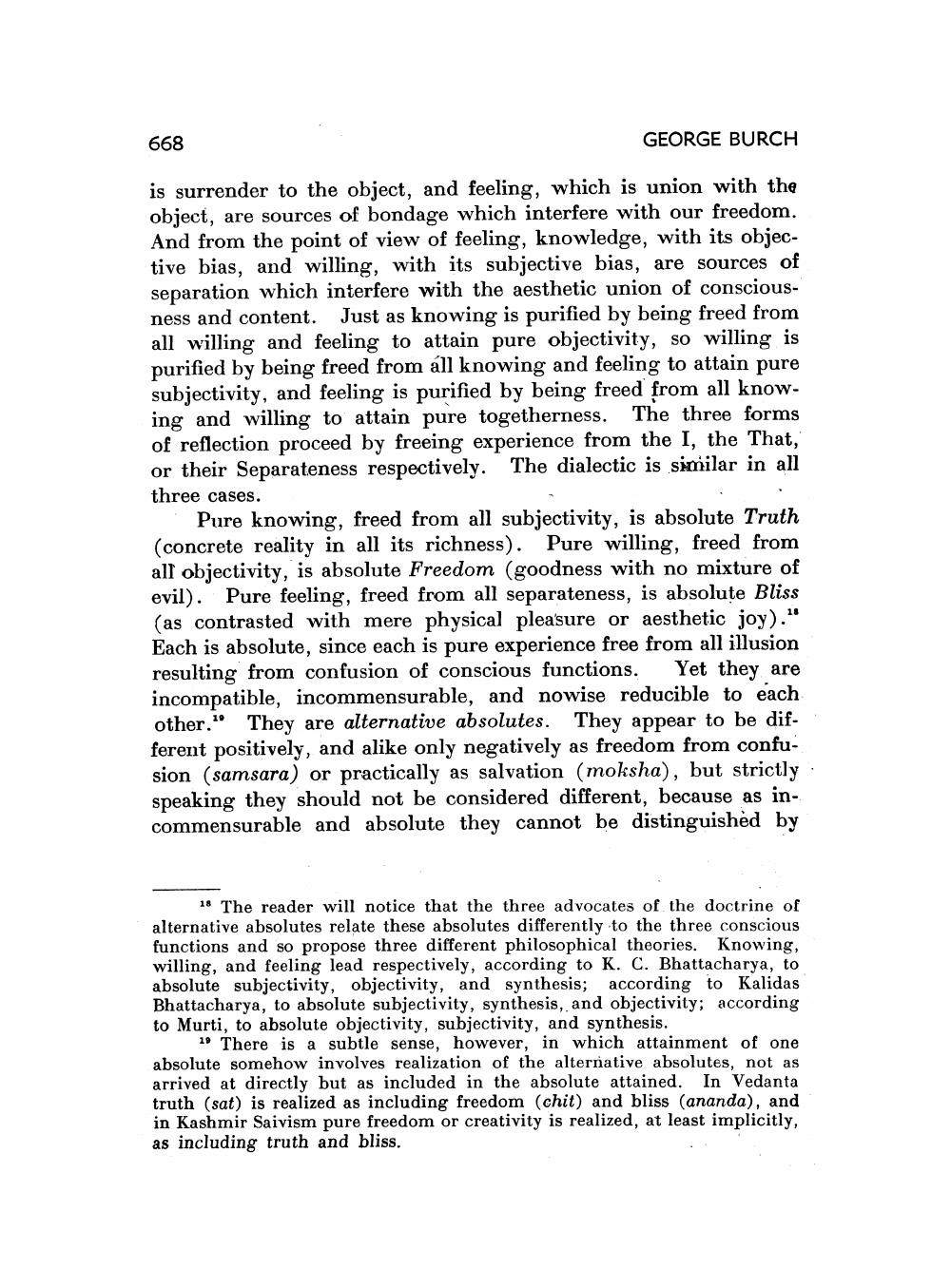________________
668
GEORGE BURCH
is surrender to the object, and feeling, which is union with the object, are sources of bondage which interfere with our freedom. And from the point of view of feeling, knowledge, with its objective bias, and willing, with its subjective bias, are sources of separation which interfere with the aesthetic union of consciousness and content. Just as knowing is purified by being freed from all willing and feeling to attain pure objectivity, so willing is purified by being freed from all knowing and feeling to attain pure subjectivity, and feeling is purified by being freed from all knowing and willing to attain pure togetherness. The three forms of reflection proceed by freeing experience from the I, the That, or their Separateness respectively. The dialectic is similar in all three cases.
Pure knowing, freed from all subjectivity, is absolute Truth (concrete reality in all its richness). Pure willing, freed from all objectivity, is absolute Freedom (goodness with no mixture of evil). Pure feeling, freed from all separateness, is absolute Bliss (as contrasted with mere physical pleasure or aesthetic joy)." Each is absolute, since each is pure experience free from all illusion resulting from confusion of conscious functions. Yet they are incompatible, incommensurable, and nowise reducible to each other." They are alternative absolutes. They appear to be different positively, and alike only negatively as freedom from confusion (samsara) or practically as salvation (moksha), but strictly speaking they should not be considered different, because as incommensurable and absolute they cannot be distinguished by
18 The reader will notice that the three advocates of the doctrine of alternative absolutes relate these absolutes differently to the three conscious functions and so propose three different philosophical theories. Knowing, willing, and feeling lead respectively, according to K. C. Bhattacharya, to absolute subjectivity, objectivity, and synthesis; according to Kalidas Bhattacharya, to absolute subjectivity, synthesis, and objectivity; according to Murti, to absolute objectivity, subjectivity, and synthesis.
19 There is a subtle sense, however, in which attainment of one absolute somehow involves realization of the alternative absolutes, not as arrived at directly but as included in the absolute attained. In Vedanta truth (sat) is realized as including freedom (chit) and bliss (ananda), and in Kashmir Saivism pure freedom or creativity is realized, at least implicitly, as including truth and bliss.




